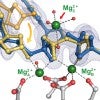
Crystal study may resolve DNA mystery
Rice University bioscientists have uncovered a tiny detail that could help understand how DNA replicates with such astounding accuracy.

Crystal study may resolve DNA mystery
Rice University bioscientists have uncovered a tiny detail that could help understand how DNA replicates with such astounding accuracy.

Rice trains postdocs for nano-cancer future
The National Institutes of Health extend a grant to help future medical professionals understand nanotechnology-enabled tools to treat cancer.

Living sensor research wins federal backing
Rice researchers are leading a federally funded project to improve communications between microelectronics and microorganisms.
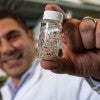
‘Drug factory’ implants eliminate ovarian, colorectal cancer in mice
Rice bioengineers have created tiny implants that activate immune cells to destroy cancer.
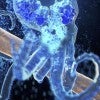
Antibody with engineered peptide targets bone metastasis
A moderate amount of a peptide-enhanced cancer drug goes a long way in treating breast cancers that metastasize to the bone.

Four faculty members and their collaborators win Advanced Research Projects Agency for Health seed grants.

Rice lands grant to improve time-release drugs
HOUSTON – (Sept. 21, 2021) – Time-released drugs are about to get a geometry lesson, thanks to bioengineers at Rice University.

NIH funds effort to customize treatment of movement impairments
Existing treatments for movement impairments are “off the rack” rather than “custom-tailored,” but B.J. Fregly, a Rice University professor of mechanical engineering and bioengineering, wants to change that situation.
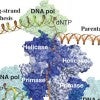
Rice lab dives deep for DNA’s secrets
Structural biologist Yang Gao receives a five-year National Institutes of Health grant to detail how complex protein chains replicate DNA and fix errors on the fly. What they find could help treat genomic disease, including cancer.

CPRIT grant establishes Genetic Design and Engineering Center
Rice faculty members led by bioengineer Gang Bao have been awarded a $4 million CPRIT grant to establish the Genetic Design and Engineering Center.
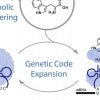
Programmed bacteria have something extra
Rice chemists expand genetic code of E. coli to produce 21st amino acid, giving it new abilities.
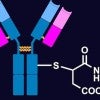
Targeted tumors attack not-innocent bystanders
Antibody-drug conjugates developed are found to attack not only targeted tumor cells but also nontargeted “bystanders.”
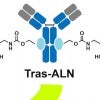
Drug doubles down on bone cancer, metastasis
Researchers at Rice University and Baylor College of Medicine develop an antibody conjugate called BonTarg that delivers drugs to bone tumors and inhibits metastasis.

Cell-wrangling circuit simplifies genetic experiments
A Rice alumnus' work pays off with The Equalizer, a synthetic circuit that assures consistent gene expression in laboratory-bred colonies.

NIH grant will help streamline chemical synthesis
Rice University chemist Julian West has won a five-year, $1.8 million National Institutes of Health grant to advance his lab’s efforts to simplify the synthesis of organic chemicals.